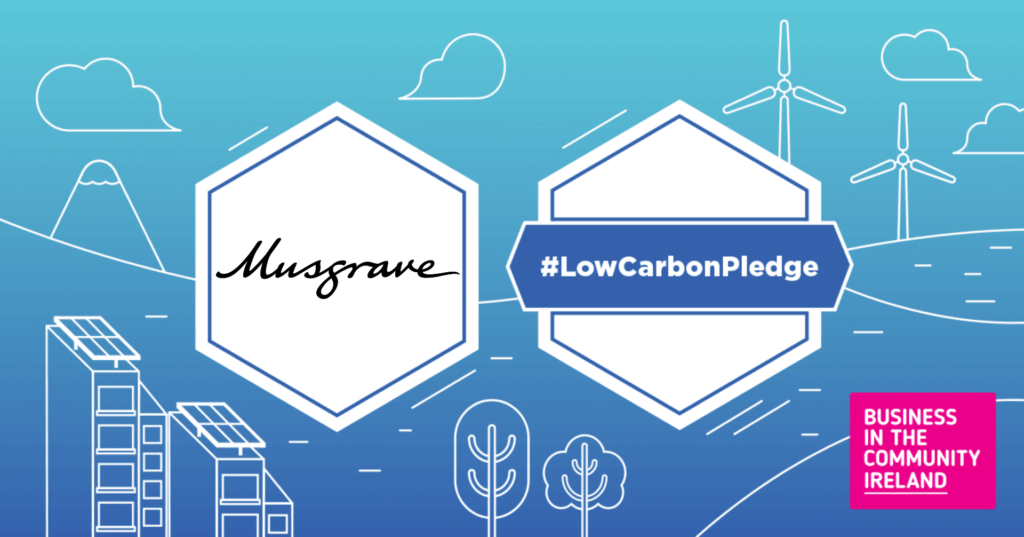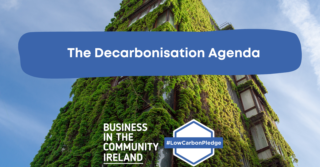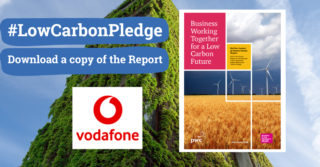Case Study: Musgrave’s strategic approach to sustainability and reducing carbon emissions
As Ireland’s leading food retailer, wholesale and foodservice company, Musgrave is well placed to support positive change in businesses, local communities and the environment. Sustainability has long been front and centre of Musgrave’s operations, becoming one of the first companies globally to embed the UN Sustainable Development Goals back in 2015. It has become a leader in Ireland in environmentally friendly operations, and last year was appointed a Sustainable Development Goals Champion by the Irish government.
This focus on sustainability has been driven by the company’s board and being embedded in the culture of the organisation. It has become a key aspect of Musgrave’s strategic long-term thinking and ingrained in the mindset and behaviours at all levels of its workforce. Musgrave has come to view the commercial, regulatory and wider societal trends through a lens of sustainability, with potential risks and consequences associated with a failure to make operations more environmentally friendly. The organisation, therefore, has come to view sustainability as a means through which to future- proof the business.
In December 2017, Musgrave launched its sustainability strategy, Taking Care of Our World. The strategy includes 27 commitments, including the reduction of the company’s carbon footprint across its operations and retail brands. At a high level, this new sustainability agenda focuses on reducing the company’s carbon emissions; buildings; transportation; plastic packaging; and food waste. Acknowledging the importance of clarity and transparency, Musgrave sought to use science- based targets to frame their sustainability objectives and have committed to reducing their carbon footprint in Ireland by 70% by 2025 and to achieving net-zero emissions by 2050.
Musgrave acknowledges such ambitious decarbonisation targets will be challenging. In some instances, the market has not yet delivered the solutions required to meet these targets. Examples of this include affordable low carbon heat and transport solutions. Regardless, Musgrave senior management are confident that by setting a 30-year goal they will succeed by aligning people’s everyday thinking and positively influence decision making today such that all activities contribute ultimately toward achieving net-zero by 2050.
The first step on the science-based targets journey was gathering the required data from across the organisation. Reporting was put in place and policies implemented to drive out greater awareness of carbon when making investment decisions. An example of this is the requirement for a lifecycle carbon reduction case for any capex approval of greater than €1m. When looking at replacing a large- scale refrigeration solution it is necessary to consider carbon emissions over the lifetime of the system which favours lower carbon solutions.
Musgrave realised that transport represented a very significant portion of total carbon emissions. This encompasses significant emissions related to getting to and from work combined with the footprint associated with more than 250 trucks servicing the distribution operation. A baseline assessment was performed to document business-related road and air-miles related emissions. Measures to date have resulted in a reduction in fleet emissions of over 55,000 tonnes annually, however, it was felt that more could be done. After quantifying the emissions of inbound and outbound transport, Musgrave has identified a series of initiatives to reduce its carbon footprint. Initiatives, such as better route planning, more efficient inbound and outbound supplier utilisation and driver training around the use of technology, will further minimise Musgrave’s carbon footprint. Longer term consideration is being given to the potential for electric vehicles for last mile delivery within city areas, as well as considering opportunities to use HGVs fuelled by biogas/hydrogen.
Musgrave has set a target of operating all its facilities with 100% green electricity, while sending zero recoverable waste to landfill. This involves working through the physical estate and sourcing renewable electricity from their providers while also seeking means to reduce overall energy consumption.
Since 2015, Musgrave has installed over 50,000 LED light fittings in their facilities and has plans to invest approximately €3 million in solar panels for SuperValu stores.
Musgrave has an ambition to help bring its sustainability experience to the communities within which it operates. Musgrave works with its retail partners to help them reduce their carbon footprint and future proof their business models by avoiding ‘locking in’ costly carbon intensive processes. This has included initiatives such as energy reduction as a key focus during store revamps, including retrofitting of energy-efficient refrigeration, lightning and HVAC. Musgrave has also run education programmes for its retail partners highlighting the significant savings to be achieved by focusing on behaviour change and energy demand-side management.
To reduce the use of plastics, Musgrave has an objective to make all its own brand, fresh produce and in-store packaging reusable, recyclable, or compostable by 2025. Packaging initiatives, such as reducing and removing plastic packaging and substituting with sustainable alternatives, have seen huge progress to date. In recent years, Musgrave has supplied SuperValu stores with compostable produce bags for loose fruit and vegetables, removing 2.7 million single-use plastic bags from its own supply chain.
Musgrave has found that their focus on sustainability has resonated very positively with consumers who are continually looking for businesses to evolve such that they minimise their environmental impact.
Download our latest guide to Setting Science Based targets.
Sign up to the Low Carbon Pledge.







